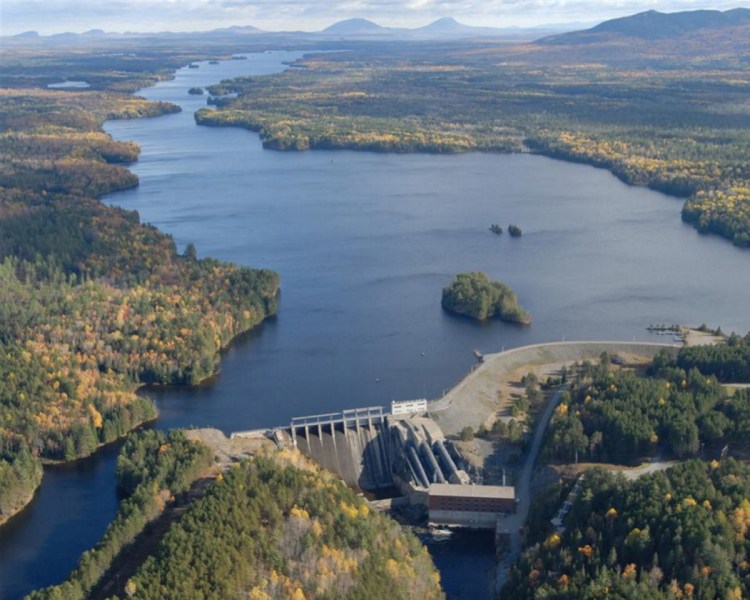Regulators who have the power to approve or derail a plan to build a 145-mile transmission line through Maine are delaying their decision.
The Maine Public Utilities Commission, which had been expected to issue a decision by year’s end on Central Maine Power’s plan to bring hydropower from Quebec to markets in Massachusetts, filed an order Friday morning saying intervenors needed more time to digest thousands of pages of information submitted in the case. Hearings set for Oct. 30 and Nov. 1 were canceled.
Instead, a conference has been set for Oct. 31 to establish a new timetable for the decision.
NextEra Energy Resources, a lead owner of Wyman Station, an oil-fired power plant in Yarmouth, and of a utility-scale solar power project in Fairfield, requested the suspension earlier this week. NextEra, an intervenor in the case, was supported by other power interests, state Sen. Tom Saviello and the town of Caratunk.
“The suspension of these hearings at this point in the process will ultimately result in a more orderly and efficient proceeding,” hearing examiners Chris Simpson and Mitchell Tannenbaum said in the order.
The project has been highly controversial. The 145-mile electrical line would bring power produced by hydroelectric dams in Quebec to Massachusetts through western Maine. Massachusetts electric utilities in June signed an agreement with Avangrid, CMP’s parent company, to build a nearly $1 billion high-voltage transmission line called the New England Clean Power Connection. The project is expected to bring 1,200 megawatts to the Bay State, enough to power roughly 1 million homes.
Central Maine Power recently filed roughly 90,000 pages of documents in the case requested by the commission, said John Carroll, a spokesman for Avangrid.
“This is just part of the process,” Carroll said in an interview Friday. “There have been outstanding requests for documents we have been working to fulfill. It has taken weeks because of the scope of the questions.”
The delay is intended to give parties appropriate time to review the documents, he added.
“For people who believe they do not have access to information, this is a very transparent process,” Carroll said. “This is all about building the record for the decision. As long as the decision rests on a complete record, it can be easily understood.”
A delay from the PUC should not affect the planned timeline to begin construction late next year or early 2020, Carroll added.
The transmission line has been opposed by a collection of environmental groups that say it will destroy a wilderness and interrupt the Appalachian Trail without reducing carbon emissions.
On Friday afternoon, the Natural Resources Council of Maine signaled its support of the delay.
“The PUC’s decision to delay hearings on CMP’s proposed transmission line is a welcome acknowledgment that this process has been moving too fast for a thorough analysis of this massive, incredibly complex and flawed project,” said NRCM attorney Sue Ely in a statement. “The documents that are just coming to light raise serious questions about where this power will actually come from and what the real impact on the climate and Maine electricity rates will be.”
Construction is also opposed by companies that own natural gas power plants in Maine and are worried about competition from imported Canadian hydropower, among other issues.
But it has been endorsed by several municipalities, businesses and organized labor because of the jobs and tax revenue it is projected to create.
Last week, CMP said it would tunnel underneath the Kennebec Gorge instead of stringing electric wires over the river, in an apparent concession to opponents concerned with the project’s impact to the region’s natural beauty and nature tourism.
Send questions/comments to the editors.



Comments are no longer available on this story